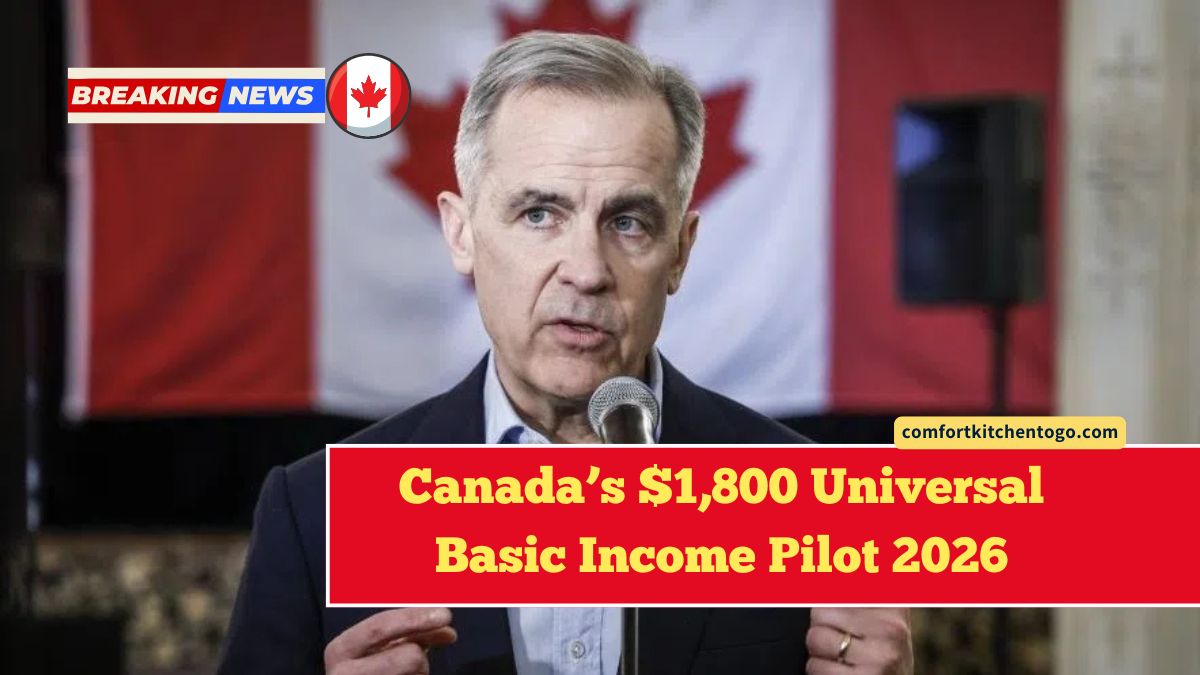Starting in 2026, the Canadian government will begin a highly anticipated Universal Basic Income (UBI) pilot program, offering direct monthly payments to selected individuals.
The Canada Universal Basic Income Pilot 2026 aims to explore the real-world impact of a guaranteed income on financial security, employment patterns, and overall quality of life.
This bold initiative will test how universal income can complement or potentially replace existing social assistance programs, especially as automation, inflation, and precarious work continue to reshape the economy.
Who Is Eligible for the UBI Canada 2026 Pilot?
Eligibility for the Canada UBI Pilot 2026 will be determined based on income level, location, and demographic diversity. Here’s a breakdown of who qualifies:
| Criteria | Details |
|---|---|
| Age | Must be 18 years or older |
| Income | Low to middle-income households (under $30K for singles) |
| Residency | Pilot limited to selected provinces (e.g., ON & BC) |
| Current Benefits | Cannot be receiving equivalent federal assistance |
| Demographic Focus | Includes Indigenous communities, newcomers, disabled persons |
Final eligibility criteria will be announced by early 2026 once legislation is passed.
UBI Payment Structure & Pilot Duration
The UBI pilot will run for 24 months, with monthly tax-free payments ranging from $1,200 to $2,400 depending on household size and income.
Payments will be issued directly into participants’ bank accounts, with no restrictions on employment or other income.
Here is a summary table of the expected UBI payment amounts:
| Household Type | Monthly UBI Amount | Taxable? | Eligibility Conditions |
|---|---|---|---|
| Single Adult | CAD $1,200 | No | Income under $30,000/year |
| Couple (no children) | CAD $2,000 | No | Joint income under $50,000/year |
| Family with Children | CAD $1,800–$2,400 | No | Amount varies by number of dependents |
Participants will not be disqualified for working. In fact, the goal is to monitor how a guaranteed income affects work behavior, education, and mental and physical health.
Why Is Canada Launching a UBI Pilot in 2026?
This pilot comes in response to growing concerns about economic inequality, housing affordability, and the rise of unstable gig work. By providing financial stability without requiring employment, the UBI aims to:
- Reduce reliance on traditional welfare systems
- Improve health, education, and employment outcomes
- Simplify and streamline government support programs
- Provide insight into long-term economic policy reform
Supporters believe the UBI can offer dignity, security, and choice, while critics argue that its cost and work disincentives remain concerns. The pilot is designed to provide the evidence needed to address both viewpoints.
How This Pilot Differs from Past Efforts
Unlike Ontario’s 2017 basic income trial, which was prematurely ended, the Canada UBI Pilot 2026 features federal-level backing, bipartisan interest, and broader inclusion.
What’s new in this version:
- Larger sample size
- Multiple provinces involved
- Voluntary data sharing to evaluate impact on health, employment, and finances
- Greater transparency and long-term funding commitment
The Canada Universal Basic Income Pilot 2026 represents a significant shift in how income support might work in the future.
With structured payments, focused eligibility, and a data-driven approach, this trial could redefine how the country supports its most vulnerable citizens. If successful, UBI could become a cornerstone of modern social security.
FAQs
Who will receive UBI payments in the Canada 2026 pilot?
Low- to middle-income residents aged 18+ in selected provinces like Ontario and BC, with a focus on underrepresented communities.
Will UBI payments impact other government benefits?
No. These payments are tax-free and won’t reduce eligibility for most provincial or federal support programs.
Can participants work while receiving UBI?
Yes. The pilot encourages recipients to continue employment or education while receiving basic income.

